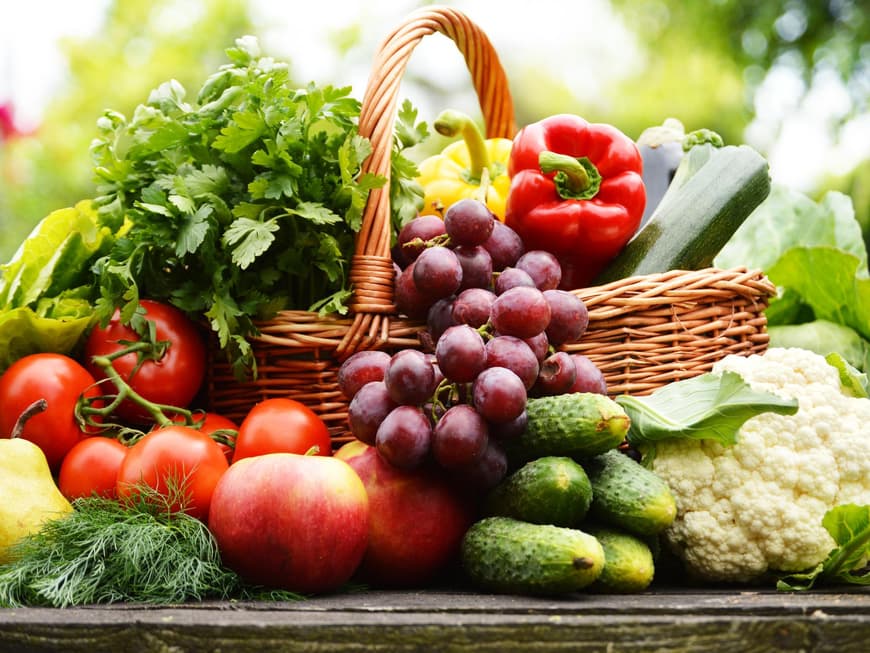
Orthorexia: fear of supposedly harmful foods
She chews a bite of apple exactly 35 times, and the apple has to be from an organic farmer. She makes her own yogurt, just like pasta. She rarely eats bread, and when she does, it has to be made from organic spelt: "I want to eat healthily, so I need to know what's in my food," says Nathalie (37). The administrative assistant from Dortmund has orthorexia. This is the technical term for a new eating disorder: sufferers are obsessed with eating only the healthiest foods. They spend hours studying lists of ingredients - flour, sugar and additives are completely banned. They become increasingly preoccupied with their diet and develop an almost panicky fear of supposedly harmful foods. Social isolation and malnutrition can be the long-term consequences of orthorexia.
It started two years ago for the convinced single man, actually quite harmlessly. "I just wanted to eat healthier," says Nathalie, "because I constantly felt guilty about eating ready meals like pizza or canned soups in the evening. It was super convenient and I liked it too. But I heard everywhere that it was so unhealthy."
Complete change of diet
So she bought a nutrition guide. "Reading it really made me realize something," Nathalie recalls. "I suddenly realized how unhealthy my diet was. Far too much sugar, far too much flour, far too many additives. I was shocked at what I had been doing to my body." She changed her diet: "I stopped eating ready meals, bread rolls, baguettes and croissants. I also stopped buying anything that was sealed in plastic, as the plastic also contains harmful substances. Instead, I buy fruit and vegetables - all organic - plus vitamins and trace elements, algae and chia seeds, no meat, no cow's milk, no wheat."
She even gives tips to the sales clerks
Nathalie now spends hours scouring the internet for new information. She is a regular customer at health food stores and organic food stores. She now even gives the sales clerks tips. Everyday life has also changed: "I used to go out for lunch with my colleagues for currywurst, pea soup or a sandwich. That's no longer possible - too unhealthy." Nathalie feels better, fitter and healthier. A pleasant side effect of her new diet is that she is slowly but steadily losing weight. However, it is becoming increasingly difficult to reconcile her private life with her new eating habits: "I can no longer go out to a restaurant with friends in the evening because I feel disgusted," says Nathalie. "Do you know what the chef has cooked up? And even when I'm invited to dinner with friends, I can't finish a bite."
She no longer sees her friends
She had a dramatic experience two months ago at her friend Yvonne's birthday party. She is a doctor. "There was a buffet, salads, cheese, cold cuts and cold roast. I didn't like any of it. But I explained to Yvonne what she should eat instead and why. She told me that she was now sick of it. That really hurt me." At home, she sits down at the PC again. "That's when I googled orthorexia for the first time. But I don't think this diagnosis applies to me."
She no longer sees her friends. Instead, Nathalie continues to tinker with her diet plan. "I eat consciously and healthily, what's wrong with that?" she asks. "I'm afraid of poisoning myself, I'm afraid of additives and sugar." Nathalie now also avoids soy and dairy products, corn, bread, sugar, black tea and coffee. She mainly eats raw vegetables, seeds, nuts and organic fruit, and she chews every bite exactly 35 times. Her friends are worried. And rightly so.
Interview: When does it become dangerous?
What exactly is orthorexia?
Clemens Janssen, nutrition expert from Hamburg: "Orthorexia is an obsessive desire for supposedly healthy food, which on the contrary is more like malnutrition."
What causes orthorexia?
Janssen: "Orthorexia usually comes on gradually. At the beginning, there is a desire to eat as healthily as possible, but over time the search for even healthier foods becomes a way of life. This then leads to social isolation."
How do I recognize orthorexia symptoms?
Janssen: "If you answer yes to the following three questions, you should possibly seek treatment: 1. would you turn down an invitation to dinner because you are afraid that nothing healthy will be on your plate? 2. do you spend more than an hour a day choosing healthy food? 3. would you rather eat nothing than something that you can't classify as healthy without a doubt?"
Does orthorexia have physical consequences?
Janssen: "Extreme stress symptoms are possible, as well as potential malnutrition. This is very harmful for those affected. Around one percent of the population suffers from it, and the trend is rising."
Does orthorexia need to be treated?
Janssen: "Yes, because there is a great danger that the behavior will become increasingly compulsive and isolation will increase. Even if there are no treatment guidelines, psychologists are the right people to turn to."
